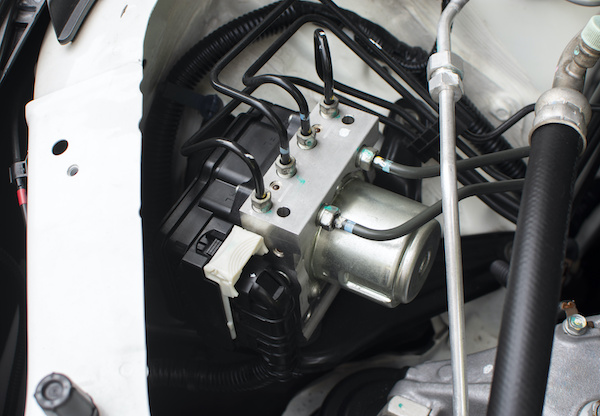
Your vehicle's brakes are super important to the safety of your vehicle. When you step on the brake pedal, you expect your vehicle to slow or stop according to how quickly you need it to. Bad brakes can lead to accidents if you aren't able to stop quickly enough. Have you ever driven your car and pushed down on the brake pedal, and felt that the pedal was spongy or soft-feeling? This is a common symptom of air in your brake lines. Let's understand what brake lines are and what some of the signs of having air in your brake lines are.
The brake lines are the parts within your brake system that house and circulate brake fluid. The brake system is hydraulic, which means it uses high pressure from the brake fluid to power your brakes. Air is the enemy in a hydraulic system because it reduces pressure and essentially makes the process less effective. When air gets into the brake lines, your brake system suffers.
Symptoms that can indicate you have air in your brake lines include the following:
- Brake pedal feels spongy when you press down
- Brakes feel soft and not as effective as they usually are
- Brake pedal depressed too much or goes to the floor
Any of these warning signs can indicate that there is air in your brake lines, and we recommend getting your car into Nerger's Auto Express as soon as you can. Driving with compromised brakes can be dangerous, and you can trust that our professionals will quickly identify the issue and get you back on the road in a timely manner.
So, how does air get into the brake lines? The brake system is actually designed to be air-tight, however, air can be drawn into the system if you are driving on worn-out brake pads or if there is a problem with the brake calipers or pistons.
The solution to air in your brake system is brake bleeding, which is how we remove the air from the brake fluid. If you suspect you need brake repair in Bound Brook NJ, we invite you into Nerger's Auto Express for assistance today!